"Deep Danube". One hundred years Ceausescu
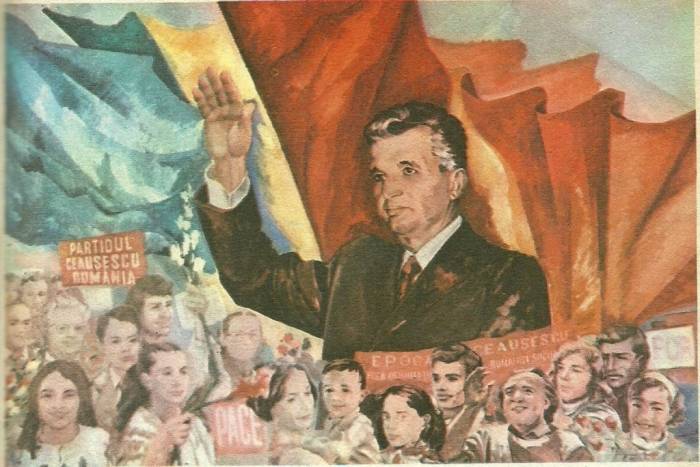
One hundred years ago, on January 26, 1918, Nicolae Ceausescu was born - a man who had a chance to live an interesting and tragic life, playing a significant role in stories not only Romania, but the whole world of the second half of the twentieth century. Nicolae Ceausescu was born in the village of Scornichesti in southern Romania. The father of the future Romanian leader Andruce Ceausescu was engaged in tailoring business, he had three hectares of agricultural land and several sheep. Although the family was not rich, there were ten children in it — a common affair for Romanian peasants of the time. Nicolae was the third child of Andruцe. And last, I must pay tribute, managed to arrange a boy in a primary rural school, where Nicholas studied to eleven years. Of course, no one could have imagined that with such an origin, Ceausescu would be headed by Romania in the future. If Nicholas had not become an activist of the communist movement, World War II would not have happened, and Romania would have remained a monarchy, most likely Nicolae would have lived his whole life a simple worker.
At eleven years Nicholas was sent to Bucharest, where he settled with his older sister Nikulina Rusescu and got a job as a student at the shoemaker. Insignificant incomes forced the guy not to starve, to engage in petty theft - a common thing for young people from proletarian suburbs. In 15 years, Nikolay became an apprentice in a shoe shop. The workshop was owned by shoemaker Alexander Sandulescu, who was not an ordinary shoemaker - he participated in the activities of the illegal Romanian Communist Party. Noticing a capable young guy, Sandulescu began to talk with him, talk about the communist movement and soon attracted him to participate in underground activities. Ceausescu joined the Communist Youth Union, and three years later, in 1936, he became a member of the Romanian Communist Party. So, actually from the very beginning of his conscious life, Nicolae Ceausescu became a revolutionary - a communist.
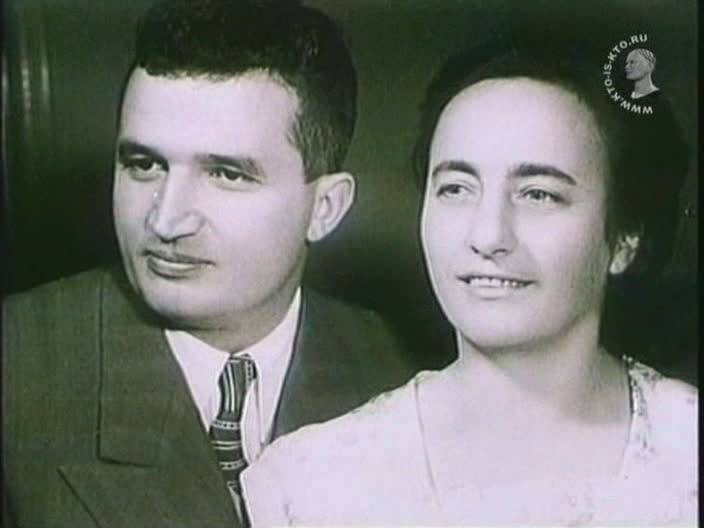
In 1936-1939 and 1940-1944 Nicolae Ceausescu was imprisoned in Romanian prisons - the royal regime mercilessly dealt with the Communists, and the prison was the best thing that could happen to a young activist. In a short space between prison sentences, fate brought 21-year-old Nicolae Ceausescu to 20-year-old Elena Petrescu. The girl, like Nicolae, was also an activist of the communist movement, and with a very similar fate — a peasant daughter from a deaf Wallachian village, then an employee of a textile factory in Bucharest. Fate bound Nikolay and Elena for the rest of their lives - they were killed in the year of the fiftieth anniversary of living together.
23 August 1944 was arrested by Romanian conductor, Prime Minister Marshal Ion Antonescu. The military-fascist regime, the ally of Hitler's Germany, ceased to exist, and the new Romanian government, which concluded peace with the Soviet Union, went to the legalization of the Romanian Communist Party. At the same time, Nicolae Ceausescu escaped from prison. In the changed situation, no one was looking for him. Brave party member took the post of secretary of the Union of Communist Youth (SCM) and quickly gained the trust of the party leadership. In 1945, the Romanian government was headed by Dr. Petru Groza, who was sympathetic to the Communists, an amazing man: a landowner who had abandoned his fortune and who also led the Front of the Farmers in royal Romania. The coming to power of the Government of Thunder was the main turning point in the fate of the young Communist Ceausescu, turning him from a Komsomol leader into a statesman. In 1945, 27-year-old Ceausescu was appointed head of the Supreme Political Directorate of the Armed Forces of Romania. The position was a general and Ceausescu, who never served in the army and did not even have a secondary education, immediately received the military rank of brigadier general. Then he was elected to the Central Committee of the RCP.
From this time on, the career of a young revolutionary who spent years yesterday in the cells of Antonescu’s horrendous prisons went uphill. In 1947-1948 Ceausescu was secretary of the regional party committees in Dobrudja and Oltenia, and in 1948-1950. held a very important for agrarian Romania at that time the post of Minister of Agriculture of the Romanian People's Republic. By this time, the Romanian government headed Gheorghe Gheorghiu-Dej - the largest leader of the Romanian communist movement, who had been the first secretary of the Central Committee of the Romanian Communist Party since 1945. Gheorghiu-Dej took up the policy of collectivizing the Romanian village, and Ceausescu, as Minister of Agriculture, was responsible for implementing this policy. Then, in the 1950 year, Ceausescu was again returned to the army - he took the post of Deputy Minister of the Armed Forces of Romania, having received the next military rank of major general, and remained in that post until 1954. In 1954, Nikolay, who was only 36 years old, was included in the Central Committee of the Romanian Workers' Party (this was the name of the RCP,) as secretary, and in 1955, he became a member of the Politburo of the RRP Central Committee and the Romanian state. In this position, Ceausescu dealt with a wide variety of issues, among which the party leadership of the Romanian special services was very important. In the 1956 year, having received the next rank of lieutenant general, Nicolae Ceausescu again headed the Higher Political Directorate of the Armed Forces of Romania. The influence of Ceausescu on the country's political life also grew.
19 March 1965, died Gheorghe Gheorghiu-Dej. The struggle for the post of first secretary was joined by three political heavyweights of Romania - Prime Minister Ion Gheorghe Maurer, First Deputy Prime Minister Gheorghe Apostol and former Prime Minister Kivu Stoyka. But on March 22 1965 of the year 47-year-old Nicolae Ceausescu was unanimously elected first secretary of the Central Committee of the Romanian Workers' Party. How could this happen? Ion Maurer put it on Ceausescu as a compromise figure, and this decision was supported by other leaders of the Communist Party. Leading the party, Ceausescu in the same 1965 year renamed the Romanian Workers' Party again into the Romanian Communist Party, and the Romanian People’s Republic into the Socialist Republic of Romania.
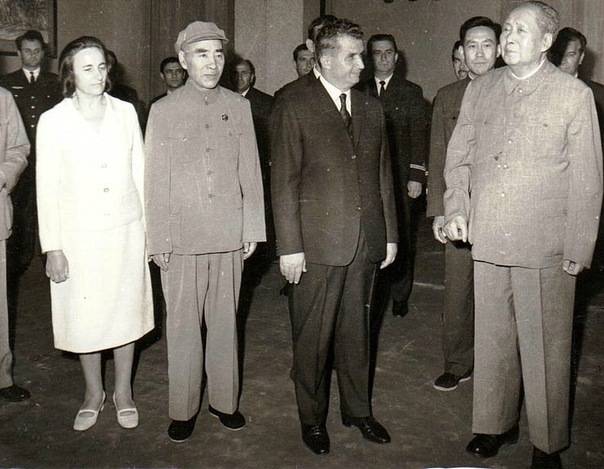
Compared to other socialist countries of Eastern Europe (with the exception of Albania and Yugoslavia), Romania’s policy was the most independent. Although, unlike Josip Broz Tito or Enver Hoxha, Nicolae Ceausescu never openly spoiled relations with the Soviet Union, he strongly emphasized Romania’s independence in choosing foreign policy and actively cooperated with both China and capitalist countries. For this, he achieved a favorable attitude towards his person from the side of Western politicians, who were impressed by the independence of Ceausescu from Moscow. In 1974, the presidency was introduced in the SRR, which, of course, occupied Nicolae Ceausescu. By the middle of the 1970, Ceausescu significantly tightened domestic policies. The Department of State Security (“Securitate”) has become a powerful structure, with great potential for dealing with dissidents. The party and security agencies sought to control all spheres of public life, including, first of all, creativity, art, the media, and the upbringing of the younger generation.
In Romania, the Ceausescu personality cult began to take shape. It is possible that visits to China and the DPRK, where he had the opportunity to observe the cults of the personality of Mao Zedong and Kim Il Sung, prompted this model of organization of the government of Ceausescu. Returning to Romania, Ceausescu ordered that the main works of the Juche ideology be translated into Romanian. He was clearly impressed by the ideas of the North Korean communists, aimed at achieving maximum self-sufficiency in politics and economics and the creation of a mobilization society.
At the same time, during the reign of Ceausescu, nationalistic components emerged in the ideological policy of the Romanian communists. Romania has always been characterized by a reverent attitude to the national issue, and “Romanianism” was considered one of the main ideological values. The monarchists, the fascists of Antonescu, and the legionaries of the Iron Guard Corneliu Codreanu dreamed of the “Great Romania”. Therefore, Ceausescu, being a Communist, still did not refuse to use nationalist rhetoric. At his direction, historians began to publish numerous articles and monographs, proving the direct origin of Romanians from the ancient Romans. It was argued that Romanian, among other Romance languages, was a direct heir to ancient Latin. However, one should not be ironic about such myths that have been implanted in the public consciousness. They played a very important role in ensuring national identity and consolidating Romanians around the course of the party and the state.
Of course, Daucescu did not dare to make direct territorial claims to the Soviet Union, but it is clear that both Moldavia, Bessarabia and Bukovina were considered by Romanian ideologues as historical Romanian lands. In the Soviet Union, this was perfectly understood, as Ceausescu’s discontent regarding the criticism of Stalinism was understood. Stalin impressed the Romanian leader as a person, and besides, Ceausescu also shared the need for the policy that Joseph Vissarionovich once pursued in the USSR.
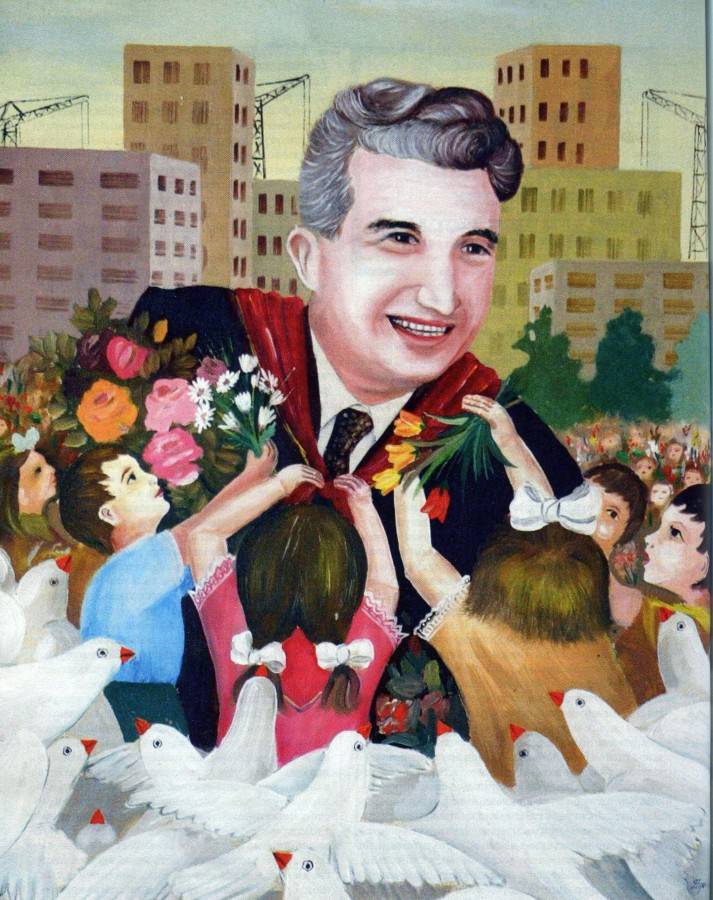
Ceausescu's nationalist policies were also designed to stimulate and increase the birth rate. Back in 1966, Ceausescu banned abortions in Romania, the sale of contraceptives to women who had less than five children. Permission to divorce was given in exceptional cases. Nicolae Ceausescu was convinced that if Romania wanted to become a great power, it must have a very high birth rate.
It should be noted that for Romania itself, Nicolae Ceausescu did very, very much. In fact, it was during his reign that Romania from a backward agricultural country, a “European beggar,” began to turn into a modern and truly self-sufficient state. Many countries could envy such successes in domestic policy. In 1974, production was 100 times higher than 1944 of the year. And the main effect was achieved precisely in 1960-e - 1970-e. During this time, our own machine-building industry emerged and began to develop rapidly in Romania, and the chemical and oil-producing industries developed rapidly. Products of the Romanian light industry gained fame outside the country. Romania made its own cars. In 1967, the Uzina Autoturisme Pitesti (UAP) car factory was built in Pitesti. Ceausescu chose the French company Renault as his main partner, managing to acquire a license to produce a model that had not yet been launched into production in France itself. The world saw the Romanian Dacia 1300 at the same time when the French Renault 12 came out.
Interestingly, Ceausescu was an absolute pragmatist in economic policy, expanding Romania’s contacts with capitalist countries and quietly taking loans from Western countries. By the way, borrowed funds were spent exclusively on the needs of the development of national industry. Ceausescu did not forget about strengthening the defenses of Romania, creating a strong and numerous national army. For example, the release of their own tanks. At the same time, Romania was actively buying military equipment and weapon from the Soviet Union.
However, already in the 1980-ies the economic situation in the country began to deteriorate gradually. This was due to Ceausescu’s intent to pay off his foreign debt in full. The president mobilized the Romanian society to solve this problem by introducing unprecedented measures, such as card supplies. Such actions as the abolition of the disability pension and raising the retirement age also did not contribute to improving the social climate in the country. Public discontent began to grow, but if in the first half of 1980's. it was still constrained by the power of the party and state apparatus, then in the second half of the 1980-s, the situation changed.
Since Nicolae Ceausescu did not share Gorbachev's perestroika ideas, he turned against him both the Soviet Union and the West. In the West and in the USSR, Ceausescu's plans to create a new socialist bloc consisting of Romania, Albania, China, Cuba, the DPRK, and Vietnam were feared. Of course, the organization of the "Orange Revolution" in Romania in December 1989, a hand and American and Soviet intelligence services. The Romanian president was betrayed even by his own army. 22 December 1989, Nicolae and Elena Ceausescu were arrested. The trial of the Romanian president was very short. 25 December 1989, Nicolae Ceausescu and Elena Ceausescu were shot in the courtyard of the military garrison barracks in the city of Targovishte.
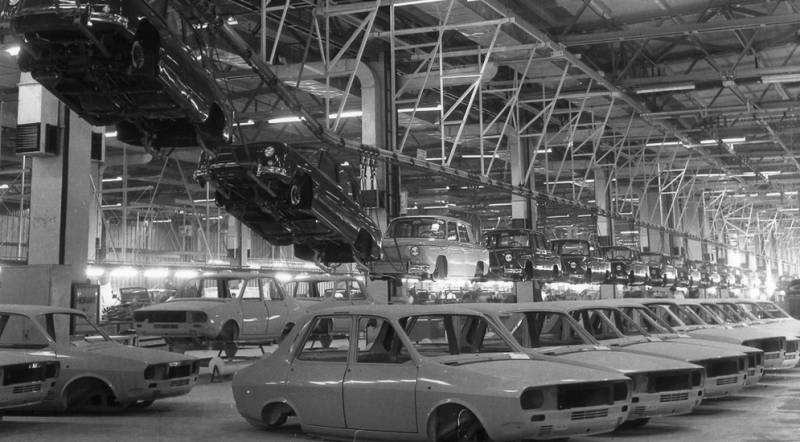
Information